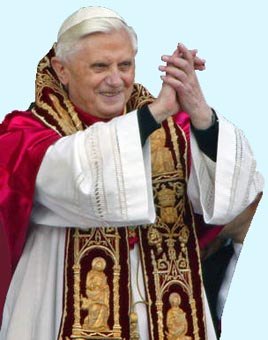
As he had on his trip to the United States in April, Pope Benedict XVI addressed reporters on his recent flight to Sydney, Australia, about the sex abuse crisis in the country that he is about to visit. Once again, even before landing, he takes up the issue—of particular import as he begins the celebration of World Youth Day. The Associated Press reported: “The leader of the church told reporters during a 20-hour flight to Australia for a nine-day visit starting Sunday that he would do everything possible to achieve ‘healing and reconciliation with the victims’ of maltreatment by priests….’just as I did in the United States.’”
Not surprisingly, his comments raised expectations that he may meet with victims. (His extraordinary meeting, arranged by Cardinal Sean O’Malley, with victims of abuse in the Boston archdiocese, remain for many the most powerful moment of a momentous trip.) Also, in response to his comments, victims advocates in have called for “action, not words,” as AP reports.
All this points out that the sexual abuse crisis is not “over,” as some have said, and as some have hoped. A wound so deep will take many years, perhaps even decades, to heal, and like any deep wound there will be a scar. And the first step in the process of forgiveness means that someone must apologize. Benedict seems to understand this better than some bishops, who were slow to apologize, and some who still believe that the crisis was largely a media creation, or a manifestation of “anti-Catholicism.” Of course, as victims rights group say, actions must follow the apologies, and the bishops have taken steps to do so, beginning with their meeting in Dallas in 2002.
But to my mind, with this issue, there is no such thing as “too much” apologizing, as there is no such thing as “too much” reconciliation. Forgiving “seventy times seven,” as Jesus said, may necessitate apologizing “seventy times seven.”
James Martin, SJ







